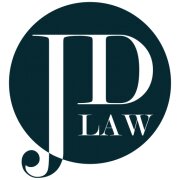Best Elder Abuse Law Lawyers in London
Share your needs with us, get contacted by law firms.
Free. Takes 2 min.
List of the best lawyers in London, Canada
About Elder Abuse Law in London, Canada
Elder abuse law in London, Canada, is designed to protect individuals aged 65 and over from harm or distress caused by abuse or neglect. This area of law draws from several legal domains, including family law, criminal law, and civil rights law, and aims to safeguard the health, well-being, and dignity of older adults. Legal protections address physical, psychological, financial, and sexual abuse, as well as neglect and abandonment.
Why You May Need a Lawyer
Elder abuse can manifest in numerous forms, and individuals may need legal assistance in various situations such as:
- Suspecting a loved one is being physically, emotionally, or financially abused by a caregiver or family member.
- Needing to review the legal rights of an older adult regarding healthcare or financial decisions.
- Encountering elder neglect in residential facilities or from in-home care providers.
- Facing challenges related to guardianship or power of attorney misuse.
- Requiring advice on protecting assets from undue influence or fraud.
- Confronting allegations of elder abuse as a caregiver or family member.
Local Laws Overview
The laws pertinent to elder abuse in London, Canada, include regulations enacted by both federal and provincial entities. The Ontario Long-Term Care Homes Act regulates care facilities, ensuring they meet standards of care. The Criminal Code of Canada addresses severe cases of abuse, defining penalties for actions such as assault and theft. Vital to the conversation is the Substitute Decisions Act, safeguarding the rights of individuals under power of attorney or guardianship arrangements.
Frequently Asked Questions
What is considered elder abuse?
Elder abuse can include physical, emotional, or sexual harm, as well as financial exploitation and neglect.
Who can be held responsible for elder abuse?
Family members, caregivers, financial advisors, and healthcare providers, among others, can be held accountable for elder abuse.
What should I do if I suspect elder abuse?
Contact the police if it's an emergency, report your concerns to local health authorities or elder abuse services, and seek legal advice if necessary.
Are there signs of elder abuse I should look out for?
Yes, signs include unexplained injuries, changes in financial situations, withdrawal from normal activities, and fearfulness around certain individuals.
Can elder abuse be a criminal offense?
Yes, certain types of elder abuse, such as theft, assault, and fraud, can lead to criminal charges.
What legal protections exist for elders living in care facilities?
The Ontario Long-Term Care Homes Act provides guidelines to ensure the safety and well-being of residents in long-term care homes.
Is financial abuse covered under elder abuse laws?
Yes, financial abuse is a form of elder abuse, including fraud, theft, and the misuse of an elder's assets or funds.
How can I protect my elderly family member from abuse?
Stay involved, maintain open communication, monitor finances, and carefully select caregivers or residential facilities.
What is the role of power of attorney in elder abuse cases?
Misuse of power of attorney can lead to financial abuse; it is crucial to ensure that a trusted and accountable person holds this responsibility.
Where do I report elder abuse in London, Canada?
You can report elder abuse to the police, local health authorities, or organizations like Elder Abuse Ontario for guidance and support.
Additional Resources
Various resources offer support and information regarding elder abuse in London, Canada, including:
- Elder Abuse Ontario: Provides educational resources and support options.
- London Police Service: Assists in cases where elder abuse is suspected and legal action is required.
- Local Health Integration Networks (LHINs): Coordinate care for the elderly and address concerns regarding abuse and neglect.
- The Advocacy Centre for the Elderly: Offers legal advice and representation connected to seniors' rights and abuse.
Next Steps
If you suspect elder abuse or need legal assistance related to elder abuse law, consider the following steps:
- Document any instances of suspected abuse with as much detail as possible, including dates, times, and descriptions of events.
- Contact local authorities, social services, or legal professionals to report suspected abuse and seek guidance.
- Consult with a lawyer experienced in elder abuse law to understand all available legal options.
- Consider reaching out to relevant advocacy groups for support and additional resources.
Prompt action can help protect the well-being and rights of elderly individuals, ensuring they receive the respect and care they deserve.
Lawzana helps you find the best lawyers and law firms in London through a curated and pre-screened list of qualified legal professionals. Our platform offers rankings and detailed profiles of attorneys and law firms, allowing you to compare based on practice areas, including Elder Abuse Law, experience, and client feedback.
Each profile includes a description of the firm's areas of practice, client reviews, team members and partners, year of establishment, spoken languages, office locations, contact information, social media presence, and any published articles or resources. Most firms on our platform speak English and are experienced in both local and international legal matters.
Get a quote from top-rated law firms in London, Canada — quickly, securely, and without unnecessary hassle.
Disclaimer:
The information provided on this page is for general informational purposes only and does not constitute legal advice. While we strive to ensure the accuracy and relevance of the content, legal information may change over time, and interpretations of the law can vary. You should always consult with a qualified legal professional for advice specific to your situation.
We disclaim all liability for actions taken or not taken based on the content of this page. If you believe any information is incorrect or outdated, please contact us, and we will review and update it where appropriate.










